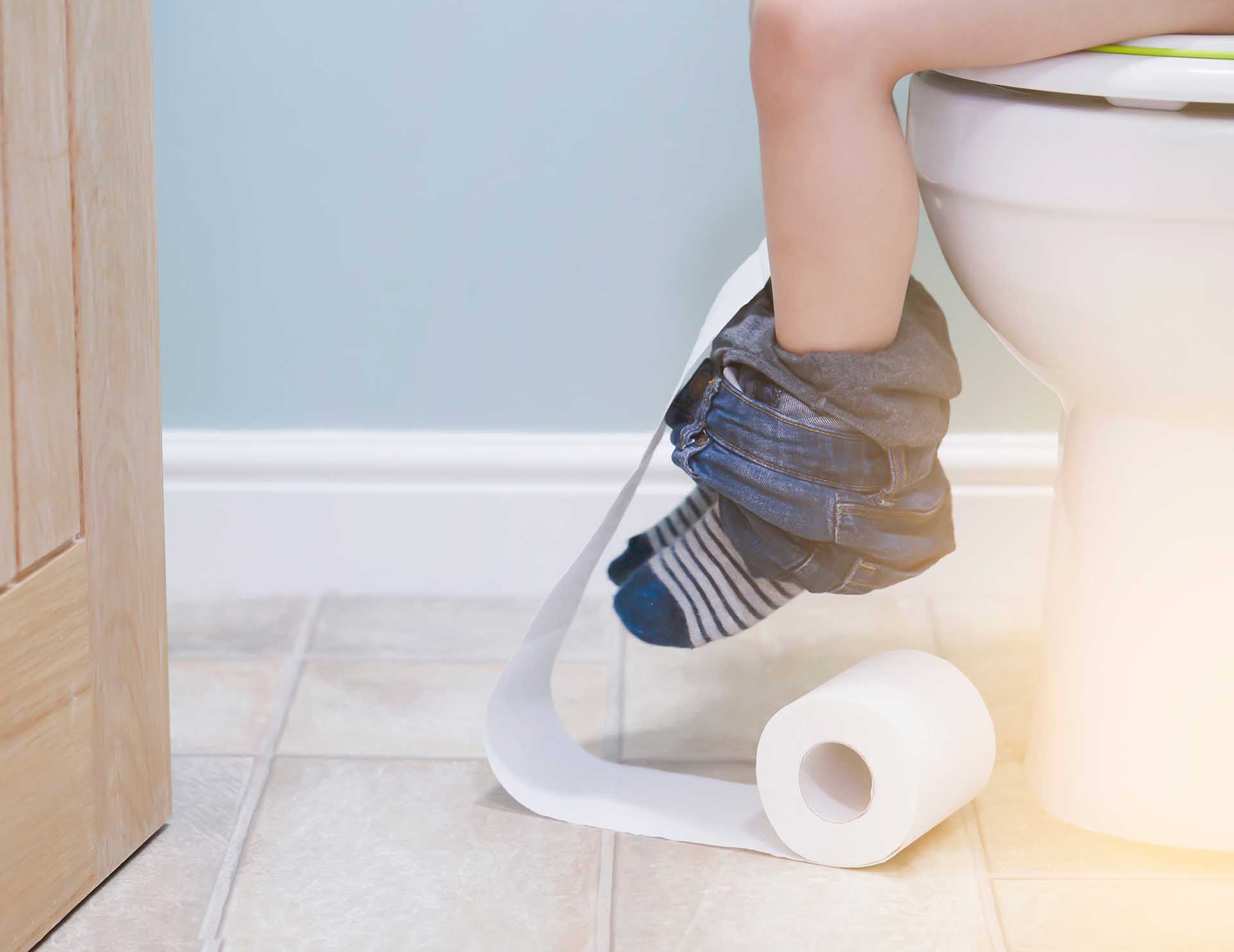Constipation refers to difficulties passing a hard bowel motion (poo). The consistency of the poo and how hard it is to pass is more important than how often your child goes to the toilet.
Bowel habits vary in children and some may only go every 2-3 days while others may go up to 3 times a day.
Constipation is quite common in children, particularly around the time of toilet training. While there are a number of possible reasons a child might become constipated, there isn’t usually a serious cause. There are also plenty of things you can do to help your child if they do develop constipation.
Signs that your child might be constipated include complaining of pain or discomfort when doing a poo, having tummy pains that come and go, becoming irritable, upset or refusing to sit on the toilet, and loss of appetite.
Possible causes of constipation in children include:
- A lack of fibre in the diet, particularly in children who are drinking too much milk and not getting enough solid food
- Not getting enough exercise
- Ignoring the urge to go to the toilet due to being too busy playing
- Not wanting to do a poo because it hurts or has hurt in the past
- Not wanting to use the toilet at school or preschool for various reasons such as lack of privacy or a smelly toilet
How to help relieve your child’s constipation
You can help to manage constipation in your child by:
- Increasing fibre in their diet, from foods such as fruits, vegetables, and wholegrains.
- Encouraging them to drink more water.
- Encouraging them to exercise more.
- Establishing a regular toilet routine to help them get used to doing a bowel movement at a similar time each day.
- Teach healthy bowel habits, such as not holding on.
- Address any concerns they have about going to the toilet, including at school or preschool.
- Limit the use of laxatives and if you do use them, try a natural laxative such as prune juice.
Occasional bouts of constipation are usually nothing to worry about but if constipation goes on for a long time it can cause other problems, such as soiling or faecal incontinence. If your child has constipation for a long time it can also be harder to treat, so it’s important to address the problem early.
See your doctor if
- If the suggestions above don’t help, see your child’s doctor for further advice. Your child also needs to see a doctor if:
- their constipation doesn’t improve after giving a laxative
- they haven’t done a poo in a week
- they accidentally poo their pants
- they also have other symptoms such as fever, vomiting or blood in their poo
- they have a very sore anus/painful cracks in the skin around their anus
- you are worried they aren’t eating or drinking enough and/or they are losing weight
For more information:
Raising Children website


